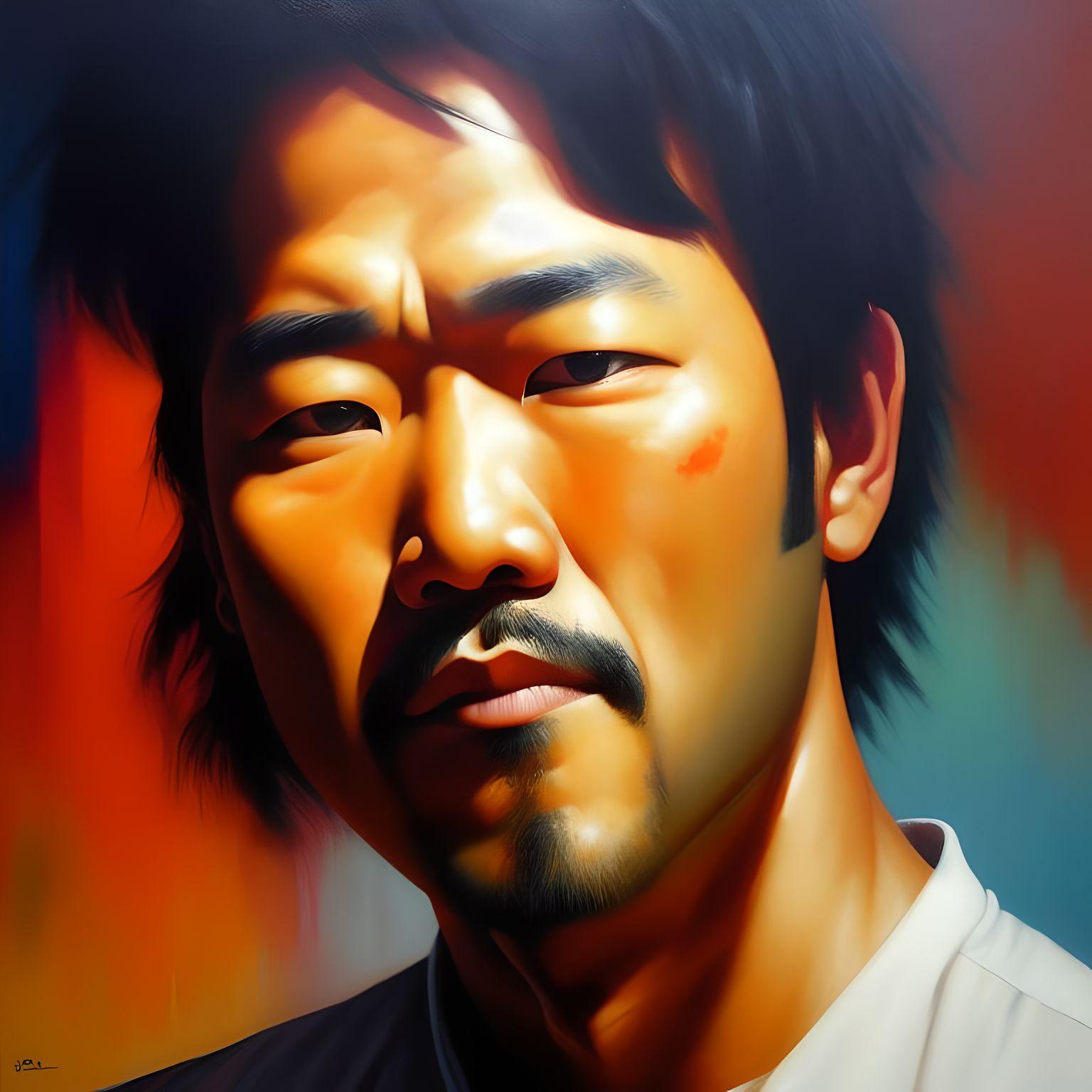Dr Donald E. Brown, Emeritus Professor of Anthropology at The University of California, Santa Barbara compiled a comprehensive list of “Human Universals”.
The book, published in 1991, is used as the foundation for the dialogue shared between the cast, the news stories read, and the music played throughout the radio drama.
After completing the project, the subtitle ‘The Post-Modern Prometheus’ was added as a nod to Mary Shelley’s subtitle for Frankenstein. The inspiration came from the feeling of existential and moral dread which overshadowed the project, using the emerging technologies available.
Some select universals were excluded from the Radio Drama. These are outlined in the section categorising the universals.
Below is a breakdown of Brown’s ‘Human Universals’. Please use the dropdown menu above to view each section individually.
First, an accompaniment to follow while listening to the drama.
Please note, some universals are repeated, but the intended inclusion is marked.
Second, the ‘Human Universals’ organised by category.
Lastly, the ‘Human Universals’ in alphabetical order.
AI (ChatGPT-4) also contributed to some of the content of the drama. A link to the prompts is included.
AI (Fotor) was also used to generate images of the cast.
Listen to the original Drama here:
(Best with headphones)
Listen to the Drama performed by real actors:
(Headphones also advised)
Coming Soon (shortly after 12 June 2023)
Human Universals Accompaniment
[ninja_tables id=”237″]
Human Universals by Category
[ninja_tables id=”242″]
Full Lists of Human Universals
- abstraction in speech & thought
- actions under self-control distinguished from those not under control
- aesthetics
- affection expressed and felt
- age grades
- age statuses
- age terms
- ambivalence
- anthropomorphization
- anticipation
- antonyms
- attachment
- baby talk
- belief in supernatural/religion
- beliefs, false
- beliefs about death
- beliefs about disease
- beliefs about fortune and misfortune
- binary cognitive distinctions
- biological mother and social mother normally the same person
- black (colour term)
- body adornment
- childbirth customs
- childcare
- childhood fears
- childhood fear of loud noises
- childhood fear of strangers
- choice making (choosing alternatives)
- classification
- classification of age
- classification of behavioural propensities
- classification of body parts
- classification of colours
- classification of fauna
- classification of flora
- classification of inner states
- classification of kin
- classification of sex
- classification of space
- classification of tools
- classification of weather conditions
- coalitions
- collective identities
- conflict
- conflict, consultation to deal with
- conflict, means of dealing with
- conflict, mediation of
- conjectural reasoning
- containers
- continua (ordering as cognitive pattern)
- contrasting marked and non-marked sememes (meaningful elements in language)
- cooking
- cooperation
- cooperative labour
- copulation normally conducted in privacy
- corporate (perpetual) statuses
- coyness display
- critical learning periods
- crying
- cultural variability
- culture
- culture/nature distinction
- customary greetings
- daily routines
- dance
- death rituals
- decision making
- decision making, collective
- differential valuations
- directions, giving of
- discrepancies between speech, thought, and action
- dispersed groups
- distinguishing right and wrong
- diurnality
- divination
- division of labour
- division of labour by age
- division of labour by sex
- dominance/submission
- dreams
- dream interpretation
- economic inequalities
- economic inequalities, consciousness of
- emotions
- empathy
- entification (treating patterns and relations as things)
- environment, adjustments to
- envy
- envy, symbolic means of coping with
- ethnocentrism
- etiquette
- explanation
- face (word for)
- facial communication
- facial expression of anger
- facial expression of contempt
- facial expression of disgust
- facial expression of fear
- facial expression of happiness
- facial expression of surprise
- facial expressions, masking/modifying of
- fairness (equity), concept of
- family (or household)
- father and mother, separate kin terms for
- fears
- fear of death
- fears, ability to overcome some
- feasting
- females do more direct childcare
- figurative speech
- fire
- folklore
- food preferences
- food sharing
- future, attempts to predict
- generosity admired
- gestures
- gift giving
- good and bad distinguished
- gossip
- government
- grammar
- group living
- groups that are not based on family
- habituation
- hairstyles
- hand (word for)
- healing the sick (or attempting to)
- hope
- hospitality
- husband older than wife on average
- hygienic care
- identity, collective
- imagery
- incest between mother and son unthinkable or tabooed
- incest, prevention or avoidance
- in-group distinguished from out-group(s)
- in-group biases in favour of
- inheritance rules
- institutions (organized co-activities)
- insulting
- intention
- interest in bio-forms (living things or things that resemble them)
- interpolation
- interpreting behaviour
- intertwining (e.g., weaving)
- jokes
- judging others
- kin, close distinguished from distant
- kin groups
- kin terms translatable by basic relations of procreation
- kinship statuses
- language
- language employed to manipulate others
- language employed to misinform or mislead
- language is translatable
- language not a simple reflection of reality
- language, prestige from proficient use of
- law (rights and obligations)
- law (rules of membership)
- leaders
- lever
- likes and dislikes
- linguistic redundancy
- logical notions
- logical notion of “and”
- logical notion of “equivalent”
- logical notion of “general/particular”
- logical notion of “not”
- logical notion of “opposite”
- logical notion of “part/whole”
- logical notion of “same”
- magic
- magic to increase life
- magic to sustain life
- magic to win love
- making comparisons
- male and female and adult and child seen as having different natures
- males dominate public/political realm
- males engage in more coalitional violence
- males more aggressive
- males more prone to lethal violence
- males more prone to theft
- males, on average, travel greater distances over lifetime
- manipulate social relations
- marking at phonemic, syntactic, and lexical levels
- marriage
- materialism
- meal times
- measuring, most units of are non-universal
- measuring
- medicine
- melody
- memory
- mental maps
- mentalese
- metaphor
- metonym
- mood- or consciousness-altering techniques and/or substances
- moral sentiments
- moral sentiments, limited effective range of
- morphemes
- mother normally has consort during child-rearing years
- mourning
- murder proscribed
- music
- music, children’s
- music related in part to dance
- music related in part to religious activity
- music seen as art (a creation)
- music, vocal
- music, vocal, includes speech forms
- musical redundancy
- musical repetition
- musical variation
- myths
- narrative
- nomenclature (perhaps the same as classification)
- nonbodily decorative art
- normal distinguished from abnormal states
- nouns
- numerals (counting)
- Oedipus complex
- oligarchy (de facto)
- one (numeral)
- onomatopoeia
- overestimating objectivity of thought
- pain
- past/present/future
- person, concept of
- personal names
- phonemes
- phonemes defined by set of minimally contrasting features
- phonemes, merging of
- phonemes, range from 10 to 70 in number
- phonemic change, inevitability of
- phonemic change, rules of
- phonemic system
- planning
- planning for future
- play
- play to perfect skills
- poetry/rhetoric
- poetic line, uniform length range
- poetic lines characterized by repetition and variation
- poetic lines demarcated by pauses
- polysemy (one word has several meanings)
- possessive, intimate
- possessive, loose
- practice to improve skills
- precedence, concept of (that’s how the leopard got its spots)
- preference for own children and close kin (nepotism)
- prestige inequalities
- pretend play
- pride
- private inner life
- promise
- pronouns
- pronouns, minimum two numbers
- pronouns, minimum three persons
- proper names
- property
- proverbs, sayings
- proverbs, sayings – in mutually contradictory forms
- psychological defence mechanisms
- rape
- rape proscribed
- reciprocal exchanges (0f labour, goods, or services)
- reciprocity, negative (revenge, retaliation)
- recognition of individuals by face
- redress of wrongs
- resistance to abuse of power, to dominance
- rhythm
- right-handedness as population norm
- risk-taking
- rites of passage
- rituals
- role and personality seen in dynamic interrelationship (i.e., departures from role can be explained in terms of individual personality)
- sanctions
- sanctions for crimes against the collectivity
- sanctions include removal from the social unit
- self-control
- self-distinguished from other
- self as neither wholly passive nor wholly autonomous
- self as subject and object
- self-image, awareness of (concern for what others think)
- self-image, manipulation of
- self-image, wanted to be positive
- self is responsible
- semantics
- semantic category of affecting things and people
- semantic category of dimension
- semantic category of giving
- semantic category of location
- semantic category of motion
- semantic category of other physical properties
- semantic components
- semantic components, generation
- semantic components, sex
- sememes, commonly used ones are short, infrequently used ones are longer
- senses unified
- sex differences in spatial cognition and behaviour
- sex (gender) terminology is fundamentally binary
- sex statuses
- sexual attraction
- sexual attractiveness
- sexual jealousy
- sexual modesty
- sexual regulation
- sexual regulation includes incest prevention
- sexuality as focus of interest
- shame
- shelter
- sickness and death seen as related
- snakes, wariness around
- social structure
- socialization
- socialization expected from senior kin
- socialization includes toilet training
- spear
- special speech for special occasions
- statuses and roles
- statuses, ascribed and achieved
- statuses distinguished from individuals
- statuses on other than sex, age, or kinship bases
- stinginess, disapproval of
- stop/nonstop contrasts (in speech sounds)
- succession
- sucking wounds
- sweets preferred
- symbolism
- symbolic speech
- synesthetic metaphors
- synonyms
- taboos
- tabooed foods
- tabooed utterances
- taxonomy
- territoriality
- thumb sucking
- tickling
- time
- time, cyclicity of
- tools
- tool dependency
- tool making
- tools for cutting
- tools to make tools
- tools patterned culturally
- tools, permanent
- tools for pounding
- toys, playthings
- trade
- triangular awareness (assessing relationships among the self and two other people)
- true and false distinguished)
- turn-taking
- two (numeral)
- tying material (i.e., something like string)
- units of time
- verbs
- violence, some forms of proscribed
- visiting
- vocalic/non-vocalic contrasts in phonemes
- vowel contrasts
- weaning
- weapons
- weather control (attempts to)
- while (colour term)
- world view
ChatGPT Inputs
Some information was sourced from ChatGPT-4 including fictional place names, directions to the fictional place names, some of the news stories, and some of the narrative. Not all of the responses were used, and some were adapted for the drama.
The link to the prompts created is here (opens in a new tab, only viewable with a ChatGPT account): https://chat.openai.com/share/751403f5-d273-4db1-be93-c4a6cceaee57
A full transcript is in the dedicated ChatGPT page in the drop-down menu.
The Cast
A separate AI, Fotor Image Generator, was used to visualise the cast of ‘Road Tripper: The Post-Modern Prometheus’.
 |  |
| Tom Carter Tom – Personal Relation Surname generated by AI | Minerva Sinclair Minerva – Roman goddess of wisdom, victory, and strategy, and sponsor of arts. Surname generated by AI |
 |  |
| Francis Domingo François-Dominique Toussaint – Haitian general and most prominent leader of the Haitian Revolution. Saint-Domingue – French colony in the western portion of Hispaniola, modern-day Haiti. Domingo – see Domingue. | Officer Tyler Foresti Tyler – Tyr, God of the Germanic peoples concerned with the formalities of war, treaties, and justice. Forseti – God of justice and reconciliation in Norse mythology. |
 | |
| Cassandra Surri Cassandra – In Greek mythology, was a Trojan priestess dedicated to the god Apollo and fated by him to utter true prophecies but never to be believed. Surri – Punjabi, Hindi, Indian (Sikh) Based on the name of a clan in the Khatri community, from Sanskrit suri “sun”, ‘priest’, ‘sage’. It is also an epithet of Krishna (See – Apollo). |
Soundtrack
01. Justice – D.A.N.C.E.
Copyright: 2007 Ed Banger Records / Because Music
02. Buzz Clifford – Baby Sittin’ Boogie
Copyright: 1960 Columbia Records
03. The Clash – Should I Stay Or Should I Go
Copyright: 1982 CBS / Epic Records
04. Bobby McFerrin – Don’t Worry Be Happy
Copyright: 1988 EMI Manhattan / Capitol
05. Red Hot Chili Peppers – Road Trippin’
Copyright: 1999 Warner Records
06. Steppenwolf – Born To Be Wild
Copyright: 1968 RCA / UMG
07. AIR – Sing, Sang, Sung
Copyright: 2009 Aircheology / Virgin Records
08. Gabriel Teodros ft. Meklit – Continuum
Copyright: 2018 Gabriel Teodros
09. Sade – Love Is Stronger Than Pride (Kaytranada Edit)
Copyright: N/A
10. Maze & Frankie Beverly – Joy and Pain
Copyright: 1980 Capitol Records
11. Elvis Presley – Crying In The Chapel
Copyright: 1965 RCA
12. Grimes – Genesis
Copyright: 2012 Arbutus Records / 4AD Ltd
13. The Beatles – Tomorrow Never Knows
Copyright: 1966 EMI
Instrumental music by Soundraw AI
Copyright & User Agreement: SOUNDRAW holds a worldwide, non-exclusive, free, sub-licensable and assignable license to freely utilize all intellectual property rights concerning music created using the Service